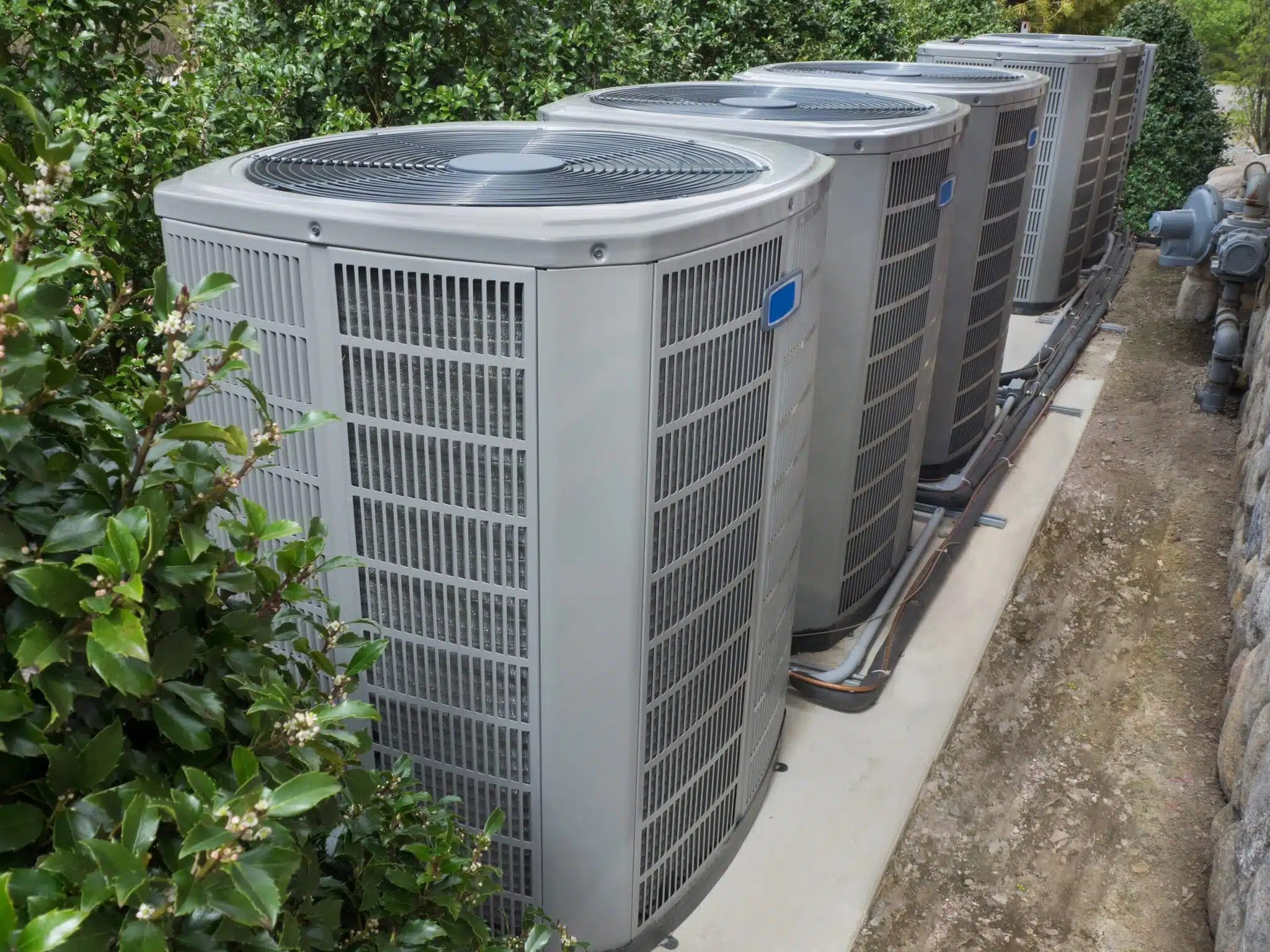How to Maximize Efficiency with HVAC Performance Testing
In Lancaster, where temperatures can fluctuate widely, having an HVAC system in top condition is not just a luxury but a necessity. HVAC performance testing helps identify potential problems before they escalate, saving you from discomfort and unexpected issues. This proactive approach is beneficial for maintaining an ideal home environment, regardless of the season.
Residents of Lancaster also understand the value of a reliable HVAC system. Through regular HVAC performance testing, they can enjoy peace of mind knowing their systems are running as efficiently as possible. This not only ensures a comfortable living space but also contributes to the longevity of the system itself.
Ultimately, HVAC performance testing is an essential service for anyone looking to maximize their system’s efficiency and comfort levels.
Understanding HVAC Performance Testing
Understanding how HVAC performance testing works is the first step towards achieving a more efficient home heating and cooling system. This process involves a series of checks and tests that evaluate your system’s overall performance. Professionals look for any discrepancies that might be causing your system to work harder than necessary. This thorough examination ensures that every component is operating as it should.
By identifying issues early, HVAC performance testing prevents minor problems from becoming major headaches. For instance, a small leak in your system in Lancaster, PA, could lead to significant energy waste and reduced system efficiency. Catching and repairing these issues early on not only keeps your system running smoothly but also helps maintain a comfortable indoor environment year-round.
In Lancaster, PA, homeowners who invest in regular HVAC performance testing can enjoy the benefits of a system that operates at peak efficiency. This means your HVAC system uses less energy to heat or cool your home, leading to improved comfort and potentially lower energy bills. It’s a proactive approach that can extend the lifespan of your HVAC system, ensuring it serves you well for years to come.
Ultimately, HVAC performance testing is about more than just preventing breakdowns; it’s about optimizing your home’s comfort and efficiency.
The Benefits of Regular HVAC Performance Testing
Regular HVAC performance testing offers a multitude of benefits that extend beyond simple system maintenance. It significantly enhances the air quality in your home, ensuring that you and your family breathe cleaner, healthier air. By routinely checking and cleaning filters, ducts, and vents, these tests reduce the presence of dust, allergens, and other pollutants. This is particularly beneficial for residents of Lancaster, PA, where seasonal changes can introduce various airborne particles into homes.
In Lancaster, PA, homeowners who prioritize HVAC performance testing also enjoy improved system reliability. Regular assessments help catch potential failures before they happen, minimizing the likelihood of unexpected breakdowns. This reliability is crucial for maintaining a comfortable home environment, especially during extreme weather conditions. It ensures that your system is always ready to provide the comfort you need, when you need it.
Another key benefit of HVAC performance testing is the optimization of your system’s efficiency. When your HVAC operates efficiently, it requires less energy to heat or cool your home, which can lead to lower utility bills. Efficient systems also put less strain on components, reducing wear and tear and prolonging the system’s lifespan. This optimization is essential for anyone looking to get the most out of their HVAC investment.
Lastly, regular HVAC performance testing contributes to the overall value of your home. A well-maintained and efficient system is a significant selling point in today’s real estate market. Potential buyers in Lancaster, PA, and beyond value the peace of mind that comes with knowing the HVAC system is in top condition. This can make your home more attractive to buyers and may even contribute to a higher selling price.
Identifying Common HVAC Efficiency Problems
Identifying common HVAC efficiency problems is crucial for maintaining your system’s optimal performance. In Lancaster, PA, homeowners might notice uneven heating or cooling in their homes, which can indicate blocked vents or duct issues. These problems can prevent air from circulating properly, making some rooms feel less comfortable than others. Addressing these issues through HVAC performance testing can restore balance and comfort to your home.
In Lancaster, PA, another frequent issue is an unexpected increase in energy usage, which often signals an inefficient HVAC system. This could be due to a variety of factors, such as aging equipment or a need for recalibration. HVAC performance testing helps pinpoint the exact cause, allowing for precise adjustments. By resolving these inefficiencies, homeowners can enjoy a more efficient system and a more comfortable living environment.
HVAC systems that frequently cycle on and off might be too large or too small for the space they serve. This not only leads to inefficiency but can also wear down the system faster. Through HVAC performance testing, professionals can assess whether your system is the appropriate size for your home. Adjusting this can significantly improve both efficiency and the lifespan of your HVAC system.
Lastly, unusual noises coming from your HVAC system can indicate a range of problems, from minor issues like loose components to more serious concerns such as motor failure. Ignoring these sounds can lead to bigger, more costly problems down the line. Regular HVAC performance testing allows homeowners to catch and address these warning signs early, ensuring their system remains in top condition.
How to Prepare Your Home for HVAC Performance Testing
Preparing your home for HVAC performance testing is a straightforward process that can help ensure the accuracy and effectiveness of the assessment. First, make sure to clear any obstructions from around your indoor and outdoor HVAC units. This allows the technician to access the system easily and perform a thorough evaluation. Removing these obstructions not only facilitates a smoother testing process but also helps in identifying any potential issues that might be hidden.
Next, check and replace your HVAC filters before the testing. Clean filters are crucial for the accurate measurement of your system’s airflow and efficiency. A dirty filter can skew test results by restricting airflow, which could lead to incorrect diagnoses. Ensuring your filters are clean helps in getting a clearer picture of your system’s health and performance.
It’s also beneficial to list any specific concerns or issues you’ve noticed with your HVAC system beforehand. Whether it’s unusual noises in Lancaster, PA, or inconsistent temperatures in Lancaster, PA, sharing these observations with your technician can guide their assessment. This proactive approach allows for a more focused and efficient testing process, addressing your concerns directly.
Lastly, ensure that all vents and registers in your home are open and unblocked. This is essential for the testing process as it allows for the accurate measurement of air flow and distribution throughout your home. Blocked or closed vents can affect the performance of your HVAC system and lead to incorrect findings during the testing. By preparing in this manner, you contribute to a more effective and comprehensive HVAC performance testing process.
Interpreting Results from HVAC Performance Testing
After your HVAC system undergoes performance testing, interpreting the results is the next crucial step. The report outlines how well your system functions, highlighting areas for improvement. It’s essential to understand these findings to ensure your HVAC operates efficiently. In Lancaster, PA, technicians will explain the results, ensuring homeowners know exactly what steps to take next.
The report from HVAC performance testing can reveal various issues, such as airflow problems or system inefficiencies. By focusing on these areas, you can make informed decisions about necessary repairs or adjustments. This proactive approach helps maintain optimal performance, keeping your home comfortable throughout the year. Residents in Lancaster, PA, value this insight, as it allows them to address issues before they escalate.
Interpreting the results also involves planning for future maintenance. The findings can guide you on how often your system needs servicing to prevent potential problems. This tailored maintenance schedule is invaluable for extending the lifespan of your HVAC system. It ensures that your system remains reliable, providing peace of mind and comfort.
Lastly, the results from HVAC performance testing can influence upgrades or replacements. If the report indicates your system is significantly underperforming, considering a more efficient model might be wise. This decision can enhance your home’s comfort and energy efficiency. Understanding the results fully equips you to make the best choices for your home and family.
Implementing Recommendations for Improved Efficiency
After understanding the results from HVAC performance testing, taking actionable steps towards improvement is crucial. Implementing the recommended changes can significantly enhance your system’s efficiency. For instance, if the testing in Lancaster, PA, suggests upgrading insulation to prevent energy loss, acting on this advice could lead to noticeable improvements in your home’s temperature control and comfort levels. These adjustments, while sometimes simple, can have a profound impact on system performance.
In Lancaster, PA, homeowners might learn from their HVAC performance testing that their system requires more frequent filter changes. Following through with this recommendation can improve air quality and system efficiency. It’s a straightforward task that can prevent larger issues down the line. By staying proactive and attentive to these suggestions, you ensure your HVAC system operates at its best, extending its lifespan and reliability.
Another common recommendation from HVAC performance testing could involve scheduling regular maintenance checks. This preventative measure can catch potential problems before they escalate, saving you from future discomfort. Regular servicing ensures that all parts of your HVAC system in Lancaster, PA, are in good working condition, promoting efficient operation and optimal air distribution throughout your home.
Lastly, implementing changes based on HVAC performance testing results might lead to considering system upgrades. If the assessment indicates that your current system is significantly underperforming, exploring newer, more efficient models could be beneficial. Making an informed decision to upgrade can enhance your home’s comfort and energy efficiency, ensuring you and your family enjoy a healthy, comfortable living environment year-round.
DIY Tips for Maintaining HVAC Efficiency Between Tests
Maintaining your HVAC system’s efficiency between professional tests is key to ensuring optimal performance. One simple yet effective DIY tip is to regularly inspect and clean your outdoor unit. Removing debris like leaves, dirt, and twigs from around the unit prevents airflow blockages, enhancing its efficiency. This routine check can make a significant difference in your system’s operation.
In Lancaster, PA, homeowners can also focus on their indoor vents to improve HVAC efficiency. Ensure all vents are open and free from obstructions such as furniture or curtains. This allows for proper air circulation, preventing your system from overworking. Keeping vents clear supports even temperature distribution throughout your home.
Another practical step involves checking and sealing any leaks in your ductwork, especially in Lancaster, PA, where temperature swings can be extreme. Even small leaks can lead to significant energy loss and reduced system efficiency. Using a simple duct sealant or metal tape to seal these leaks can improve your system’s efficiency and your home’s overall comfort.
Lastly, setting a reminder to replace your HVAC filter every three months can prevent a multitude of efficiency issues. A clean filter maintains good air quality and ensures your system runs smoothly. This easy task is something every homeowner can do to contribute to their HVAC system’s longevity and performance.

When to Call Professionals for HVAC Performance Testing
Understanding when to engage professionals for HVAC performance testing is crucial for maintaining your system’s health and efficiency. While regular homeowner maintenance can keep your system running smoothly, certain situations necessitate the expertise of a professional. If you notice your energy bills in Lancaster, PA, have unexpectedly increased without a change in usage habits, it’s a clear sign that your system might be working harder than it should. Professional HVAC performance testing can uncover hidden issues causing this inefficiency.
Another scenario that calls for professional intervention is when you experience inconsistent temperatures throughout your home. If some rooms are too hot while others are too cold, it could indicate problems with your system’s airflow or ductwork. In Lancaster, PA, where temperature fluctuations are common, ensuring your HVAC system distributes air evenly is essential for comfort. Professionals can conduct thorough testing to diagnose and correct these issues.
If your HVAC system starts making unusual noises, such as banging, whistling, or grinding sounds, it’s time to call in the experts. These noises can signal anything from a minor issue to a major system failure. Ignoring these sounds can lead to more significant, costly problems down the line. A professional HVAC performance test can pinpoint the source of the noise and recommend the best course of action.
Finally, if your system is old and you’re considering an upgrade, professional HVAC performance testing can provide valuable insights. An expert can assess whether your current system still meets your needs or if a new, more efficient model would be more beneficial. This assessment ensures that any investment in your HVAC system is informed and tailored to your specific requirements, helping you achieve optimal efficiency and comfort in your home.
Frequently Asked Questions
What is HVAC Performance Testing?
HVAC performance testing is a process that checks if your heating, ventilation, and air conditioning system is working efficiently. Experts use special tools to measure airflow, temperature, and energy use. This helps find any issues that might be making your system work harder. Fixing these problems can make your home more comfortable and your system run smoother.
How often should you test your HVAC system?
Experts recommend testing your HVAC system at least once a year. This ensures it runs efficiently and keeps your home comfortable. Regular testing can also catch small problems before they grow. Making it a key step in maintaining your system’s health and efficiency.
What tools are needed for HVAC Performance Testing?
Specialized tools are essential for HVAC performance testing. Experts use anemometers to measure airflow and digital thermometers for accurate temperature readings. Manometers help check system pressure, ensuring everything is balanced. Lastly, humidity meters assess moisture levels, crucial for maintaining optimal comfort and efficiency.
Can DIY methods improve HVAC efficiency?
DIY methods can sometimes enhance HVAC efficiency. Regular cleaning and replacing filters are simple tasks that help. Sealing leaks in ductwork also improves system performance. However, for thorough HVAC performance testing, professional expertise is essential.
What are common issues found during testing?
During HVAC performance testing, experts often uncover a few common issues. Blocked air filters and leaks in ductwork significantly reduce system efficiency. Poor airflow and incorrect thermostat settings also lead to uneven heating or cooling. Lastly, low refrigerant levels can cause the system to work harder, impacting overall performance.















